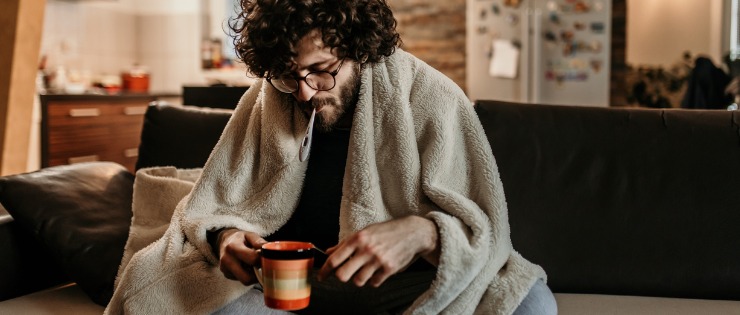
We all know that the new Coronavirus (COVID-19) is causing health, social and economic uncertainties across the world. As the virus starts to hit closer to home and the news coverage becomes more alarming, it’s difficult to know what to think or what to do to protect you and your loved ones. Here’s everything we know so far about the Coronavirus (COVID-19) and how you can stay informed and reduce your chances of being infected by the contagious virus.
What is Coronavirus (COVID-19)?
COVID-19 is a respiratory illness caused by the 2019 novel coronavirus which was first detected in Wuhan, China in late December 2019. The virus itself is a large family of viruses named after the spikes on their surface that look like crowns (“corona” in Latin means crown).
How is COVID-19 Spread?
COVID-19 can pass from person to person through respiratory droplets and close contact. When an infected person sneezes, coughs or talks, respiratory droplets containing the virus can settle on people nearby potentially causing infection.
Close contact is within two metres of a COVID-19 case for a prolonged period such as living with, caring for or sharing a waiting area or having direct contact with infectious secretions, according to the Centres for Disease Control and Prevention (CDC).
Covid-19 can also spread via infected surfaces. If an infected person touches or breathes on a surface, the virus may stay on the surface for a few hours or up to several days. This may vary under different conditions (e.g. type of surface, temperature or humidity of the environment).
In the early days, cases of COVID-19 were only seen in people returning to Australia from countries with outbreaks. Health departments located people who have been in contact with infected individuals to test and/or isolate them from the rest of the community. But as the virus spreads to more countries and Australia records more cases, the virus began spreading to people with no travel links. To stop or slow community spread of the virus within the community, infected individuals are now required to isolate themselves.
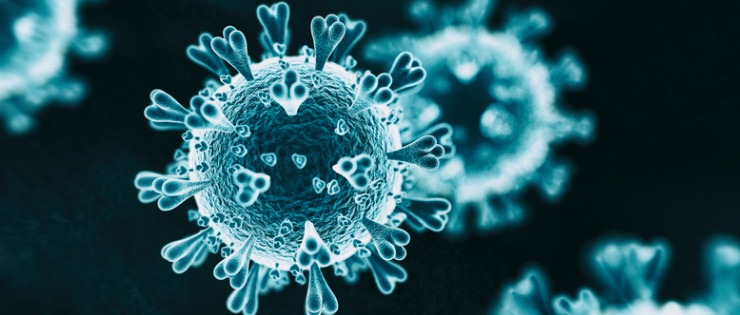
How Does COVID-19 Compare to Other Viruses?
COVID-19 isn’t the first coronavirus the world has seen in recent years. In 2002-03 SARS (Severe Acute Respiratory Syndrome) spread from China to 30 countries. Like COVID-19, the virus spread from animal to human, most likely a small cat-like animal called a civet. The virus was contained within a few months after 8,400 cases (only one imported case in Australia) and 900 deaths were recorded. The mortality rate for SARS was 9.6%, with the victims mainly aged over 60.
In 2012, there was MERS (Middle East Respiratory Syndrome), another zoonotic disease, which means it can spread from animals to people. This virus started in dromedary camels, but evidence shows it’s not in Australian camels. The mortality rate for MERS was 34.4%. There were no cases in Australia.
Facts About COVID-19
As COVID-19 is such a new virus, doctors are learning more about its incubation, symptoms and treatment every day.
Incubation Period
The incubation period between being exposed to the COVID-19 virus and symptoms first appearing is five to six days however, it can range from two to 14 days. Therefore, people who may have been in contact with the virus are required to self-isolate for a minimum of two weeks.
Symptoms
Coronavirus can cause mild illness with symptoms like those you experience with the common cold through to serious illness and death as seen in other coronaviruses - SARS (Severe Acute Respiratory Syndrome) and MERS (Middle East Respiratory Syndrome). COVID-19 symptoms for most people are like the common cold or flu virus, however a small percentage of people suffer severe effects.
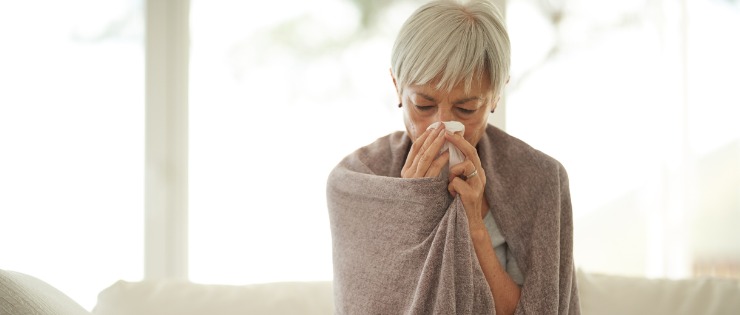
The symptoms include:
Fever
Upper respiratory symptoms (Cough, sore throat, nasal congestion, malaise, headache, muscle aches)
Difficulty breathing
Mild pneumonia
Severe pneumonia
Acute Respiratory Distress Syndrome (ARDS)
Sepsis and Septic shock
Treatment
There are no known medication doctors can use to treat COVID-19 patients that guarantee recovery. However, two existing antiviral drugs are showing signs of being effective in treating COVID-19. One drug was used to treat Ebola and the other is an older HIV drug. Being existing drugs, the side effects are known and the drugs considered safe. Doctors in China reported some success using these drugs through random controlled trials.
While a human trial is underway for a COVID-19 vaccine, health experts estimate a vaccine won’t be ready for public use for 12-18 months.
Who’s Most at Risk of COVID-19?
Everyone who comes in contact with a person infected with COVID-19 is at risk of contracting it, but some people in the community are at a higher risk of being infected. Others are at a high risk of severe symptoms and death.
Medical Professionals
Early in the outbreak in China medical professionals were the most vulnerable to being infected from COVID-19. Caring for people who suspect they’re infected through those needing intensive care, our health care staff are at risk of contracting COVID-19 unless they wear adequate personal protection.
Elderly People
Older people are more likely to contract the virus than young people. The World Health Organization (WHO) found 87% of positive cases in China were aged between 30 and 79 years.
The fatality rate of people aged less than 40 in China is 0.2%, for those in their 40s it increases to 0.4%, in their 50s is 1.3%, in their 60s is 3.6%, in their 70s is 8.0% and for those in their 80s it jumps to 14.8%. Elderly males are more at risk than elderly females.
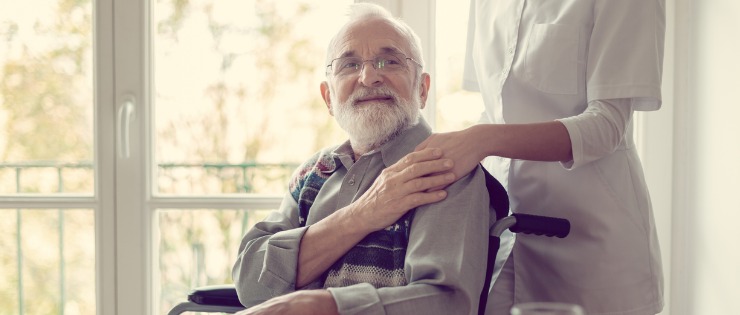
One study from Wuhan blamed poor outcomes for the elderly on the age-related weakening of the immune system and increased inflammation.
While the virus can infect children, they are least at risk of serious illness from COVID-19 and usually only suffer mild symptoms.
People with Serious Health Conditions
Those people who have a serious medical condition such as heart disease, diabetes or lung disease are also more at risk of complications and death from COVID-19 than a healthy person of the same age.
Coronavirus Overseas
Coronavirus started in China in the Wuhan province, but because of air travel and the contagious nature of COVID-19, it spread to most countries within three months.
Many countries closed their borders to non-citizens or enforced strict quarantine measures. While these attempts slowed the rate of transmission, community spread has occurred in some countries and they have put quarantine measures in place.
The world is looking to China, Iran and Italy for information about how the virus behaves and mortality rates. The World Health Organisation has advised that around 3.4% of reported cases of COVID-19 patients have died.
If You’re Planning to Travel Overseas
Currently there is a ban on all overseas travel, with very few exceptions. If you’re overseas and want to return home, the Australian Government urges you to do so as soon as possible while flights are still available. it’s important to check travel warnings and flight bookings as airlines worldwide have cancelled flights. For the latest travel advice, see Smartraveller.
Coronavirus in Australia
The Australian Government is working on slowing the spread by tracking down people who have been in contact with those who have tested positive. Contact tracing is designed to help the health care system cope with a potentially high number of patients needing intensive care. Other countries have seen the number of deaths rise sharply when the hospital system is overloaded. By slowing the spread, the peak number of infections flattens out and lengthens the outbreak. For daily updates on the current situation please visit Health.gov.au.
How You Can Protect Yourself from Coronavirus
Coronavirus is highly contagious so staying virus-free might be difficult. Some people might be positive but don't know they have Coronavirus for a day or two because their symptoms are so mild and stay in the community spreading the virus and infecting others.
Australians are lucky to have a high standard of living and health care compared to most of the world. But coronavirus doesn’t discriminate, everyone is at risk. There are steps you can take to decrease your risk and protect those around you if you become infected. If you develop any symptoms, it’s important you self-isolate immediately to stop the spread and protect vulnerable members of the community.
The World Health Organisation told the public in late January and February of this year, that asymptomatic transmissions (positive with no symptoms) of COVID-19 are rare. But more recently, health officials around the globe are challenging this statement, due to the number of confirmed cases aboard the Diamond Princess cruise ship who tested positive for COVID-19 and didn’t show any symptoms.
Which sparks the question should Australia follow the US to override the World Health Organisation and urge Australians to wear masks out in public?
Personal Hygiene
Governments and health experts around the world are advising people to practice good hygiene to stop the spread of COVID-19.
Wash Your Hands
Something as simple as washing your hands regularly with soap and water or hand sanitiser can help keep you safe. The US Centres for Disease Control estimates around 80% of all infectious diseases such as cold and flu viruses are transmitted by touch. And Coronavirus is no different.
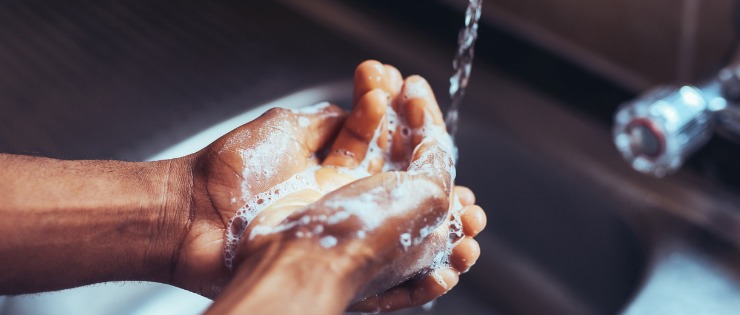
The virus can live outside the body on surfaces, some longer than others. When we touch a handrail, lift button, light switch, or doorknob, the virus can transfer onto our fingers and hands.
Stop Touching Your Face
We do it without thinking – scratch our nose, rest our hand near our mouth and rub our eye. But every time you do, you could transfer the germs and viruses on your fingertips into your body.
Microorganisms or pathogens can’t enter our body through the skin, the entry points are via our nose, mouth and eyes. Keeping dirty hands away from your face means you won’t transfer these microbes to your body’s entry points.
It’s a good habit to get into not touching your face unless you have clean hands. You’re reducing your chance of contracting colds, the flu and gastro infections.
Dirty Surfaces
COVID-19 behaves like other coronaviruses and survives on hard surfaces. The World Health Organisation (WHO) believes the survival rate could vary from a few hours or up to several days. The variation can be because of the surface, humidity and temperature of the environment. An infected surface can be cleaned by wiping with a disinfectant.
It’s important to clean your hands after touching high-touch surfaces such as those on public transport. Washing your hands with soap and water, or using hand sanitiser with at least 60% alcohol content is enough to disinfect your hands. Try not to touch surfaces unnecessarily in busy public areas and wash your hands as soon as possible, particularly when you arrive home. Also, clean high touch points in your home with a disinfectant regularly.
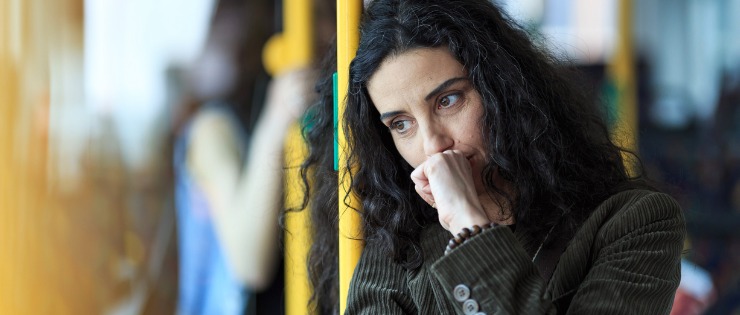
Will the Flu Vaccine Help Protect You?
No, the flu vaccine doesn’t provide any protection against COVID-19 as they are very different viruses. But, the vaccine will provide some protection against catching the flu this flu season. If fewer people suffer complications from the flu, it will help hospitals cope with the potentially large number of patients with COVID-19.
Reducing Community Spread
Some parts of Australia are recording cases of community spread.
Social Distancing
We must follow strict social distancing rules to help slow the spread of Coronavirus.
Keeping Your Distance
One way to slow the spread of the virus is to practise social distancing (also known as physical distancing).
This means when out in public you should:
Keep 1.5 metres away from others at all times
Stay home - only go out in public if it’s essential
Avoid physical greetings (handshakes, hugs and kisses)
Use eftpos (tap and go) instead of cash
Australians are advised to practice social distancing at home. This includes:
- Keeping visitors to a minimum
- Increase ventilation at home (opening windows or adjusting the air conditioning)
- Disinfect regularly touched surfaces (doorknobs, tables, kitchen bench, handrails and light switches)
Read more about social distancing here.
Non-Essential Gatherings
Public gatherings significantly increase the risk of spreading COVID-19. As of March 29, the Australian Government enforced further limitations on indoor and out-door non-essential gatherings/
The Australian Government advises you to stay home unless you’re:
Going to work or education (if you’re unable to do so from home)
Shopping for essentials (groceries, picking up medicines, and returning home with no delay)
Exercising outdoors (on your own, or with one other person)
Attending medical appointments or compassionate visits
As of March 23 2020, the following restrictions were put into place to stop the opening of the following facilities:
Pubs, registered and licensed clubs (with the exclusion of bottle shops attached to these venues) hotels (excluding accommodation)
Gyms & indoor sporting complexes
Cinemas, entertainment venues and casinos
Restaurants and cafes restricted to takeaway only/or home delivery
The following gatherings are also restricted:
As of 26 March 2020, the restrictions were extended to the following facilities:
Food courts (restricted to takeaway only)
House auctions, open houses and real estate auctions
Personal services (beauty, tanning, nails, waxing, tattoo parlours)
Health clubs, fitness centres and wellness centres
See the complete list of restricted facilities here.
What To Do if You Think You Have COVID-19
After travelling overseas or if there’s community spread of COVID-19, you should be vigilant for symptoms including a fever, cough or shortness of breath. If you develop any symptoms, immediately self-isolate.
If you’re seeking medical attention in person, call ahead to your doctors’ surgery for instructions on how to reduce the risk of infecting other people in the facility. Some metropolitan and regional areas have set up COVID-19 clinics for testing so enquire about your nearest clinic.
If you contract the virus and your symptoms are mild, recover with bed rest and over the counter medication to treat fever and respiratory illness, as you would if recovering from the flu.
Government Information
Governments around the world have been preparing for the possibility of a pandemic particularly since the SARS virus. Listen to government advice and follow recommendations to help keep you and your community safe.
Sources of Information
There’s plenty of information circulating, much of it misinformation and myths. It’s important you get information from credible sources such as government authority websites.
Most of the state’s health websites are providing daily updates on COVID-19.
NSW Health
Vic Health
Qld Health
ACT Health
WA Health
Tasmanian Health
NT Health
SA Health
For details of the number of worldwide reported cases, deaths and recoveries, see global Coronavirus COVID-19 tracker from Johns Hopkins University.
Level of Concern About Coronavirus
The reactions of Australians to the threat of Coronavirus differs widely with some people being highly concerned and others not concerned at all. Panic buying in supermarkets has alarmed some people more than the virus. The Australian Government has called on everyone to remain calm and to go about their daily life as before while encouraging everyone to follow healthy hygiene habits. Whilst fear is a normal response to an unknown threat such as COVID-19 if you or your family are feeling highly anxious contact a helpline or website recommended by Beyond Blue for support.